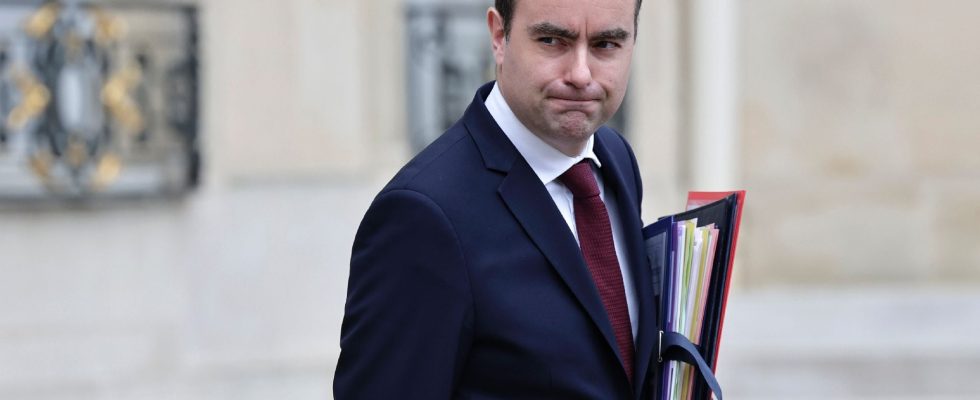This is a first since October 2022. French Minister of the Armed Forces Sébastien Lecornu spoke on the telephone on Wednesday with his Russian counterpart Sergei Choïgu. This one-hour exchange requested by Paris on the issue of counter-terrorism, comes shortly after the attack on March 22 near Moscow, which left at least 144 dead and 360 injured, claimed by the Islamic State organization (IS). ).
Dissensions over the nature of the discussions immediately arose in the communiqués from the two capitals, which also mentioned the war in Ukraine. The Russian Defense Ministry said Wednesday evening that the two countries said they were “ready to hold dialogue” regarding the conflict in Ukraine. “The starting point could be the Istanbul Peace Initiative,” he added.
Comments, a priori unexpected on the part of France, immediately denied by Paris. The Russian minister clearly affirmed “being ready to resume dialogue on Ukraine” but “France has neither accepted nor proposed anything” on this subject, the French minister’s entourage told AFP. Sébastien Lecornu had earlier indicated in a press release that he “unreservedly condemned the war of aggression that Russia has launched in Ukraine” during this call.
Moscow’s suspicions towards Paris
Concerning the Moscow attack, the positions of the two countries also seemed marked on Wednesday by opposing readings of the events. Sébastien Lecornu “recalled France’s availability” for “increased exchanges” with Russia in the fight against “terrorism”, according to the press release from his ministry.
He also insisted on the fact that France “did not have any information to establish a link between this attack and Ukraine” and asked Moscow to “cease any manipulation”. Moscow’s response: “The Kiev regime does nothing without the approval of its Western supervisors. We hope that, in this case, the French secret services are not behind it.” Russian information attacks seem to be increasing against France while Paris recently concluded a bilateral security agreement with kyiv, with Moscow denouncing Paris’ “growing involvement” in the conflict.
Macron denounces “baroque and threatening” remarks
This Thursday, it was the French president who, for his part, reacted to this new diplomatic tension, criticizing “baroque and threatening comments” from the Russians. “It’s ridiculous, it’s saying that France could be behind, that the Ukrainians are behind… It all makes no sense. But it’s a manipulation of information which is part of the arsenal of war as it is used today by Russia”, commented the Head of State during the inauguration of an aquatic center for the Paris Olympic Games.
Emmanuel Macron justified the initiative of this exchange, the first officially since October 2022, by the fact that France had precisely “useful information” to transmit “on the origins and organization of this attack” claimed by the organization Islamic State (IS). “We have to work together with all those affected by terrorism. And when we have information, have technical exchanges, I think that is our responsibility,” he argued.
The French president thus assures that he sees it as “a demonstration” of what he has been saying “since the beginning of the year”: “an increase in Russia’s aggressive posture and that is not just happening with France.” “I invite you to look at what has been done in terms of leaking information about senior German military officials, what has been done with regard also to the United Kingdom and the United States which some Russian officials have said that they were behind the attack. There is a succession of information which we know is false, which corresponds to threatening postures,” he judged.
Rare discussions between Russia and the West
Wednesday’s meeting between the two ministers was in itself important, as high-level discussions have been rare between the Western camp allied to kyiv and Russia since the Russian invasion of Ukraine in February 2022. Russian Foreign Minister Sergei Lavrov and US Secretary of State Antony Blinken last spoke on the phone in April 2023, with Sergei Shoigu having spoken with his US counterpart Lloyd Austin the previous month.
Russia regularly sends Sergei Lavrov to G20 meetings, including in February this year, but there is no indication that he has spoken directly with Western officials.
